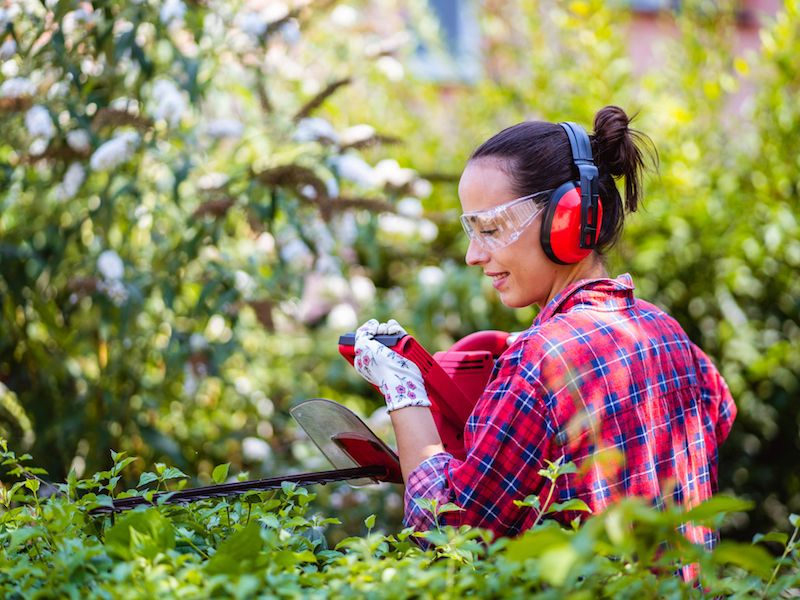
Eating right and safeguarding your hearing have some similarities. It’s difficult to know where to begin even though it sounds like a good idea. This is especially true if you don’t think your daily environment is particularly noisy and there aren’t any apparent risks to your ears. But everyday life can stress your ears and your senses, so practicing these hearing protection techniques can help preserve your auditory acuity.
The more you can do to slow the impairment of your hearing, the longer you’ll be capable of enjoying the sounds around you.
Tip 1: Hearing Protection You Can Wear
The most basic and practical way that you can safeguard your ears is to protect your ears. This means that diminishing loud and harmful sound is a basic step you should take.
For most people, this will mean using ear protection when it’s required. Hearing protection normally comes in two basic forms:
- Ear Plugs, which are placed in the ear canal.
- Ear Muffs, which are placed over the ears.
Neither form of hearing protection is inherently better than the other. There are positive aspects to each style. Your choice of hearing protection should, most notably, feel comfortable.
Tip 2: Be Aware When Sound Gets Harmful
But how can you be sure when to wear hearing protection? We’re used to associating harmful noise with painful noise. But honestly, sounds can start to damage your ears at a much lower volume than you might anticipate. After only a couple hours, as an example, the sounds of traffic are enough to injure your hearing. Recognizing when sound becomes dangerous, then, is a necessary step in safeguarding your hearing.
The following threshold is when sound becomes harmful:
- 95-100 dB: This is about the sound level you’d expect from farm equipment or the typical volume of your earbuds. This volume of noise becomes harmful after 15-20 minutes.
- 85 decibels (dB): After about two hours this volume of sound is dangerous.This is the volume of sound you’d expect from a busy city street or your hairdryer.
- Over 100 dB: Your hearing can be very rapidly injured by this. Injury is done in about thirty seconds with sounds above this threshold. Jet engines and rock concerts, for instance, can injure your hearing in about thirty seconds.
Tip 3: Use Your Phone as a Sound Meter
We can take steps to minimize our exposure, now that we have an idea of what levels will be dangerous. But in real life, it can be difficult trying to measure what is too loud and what isn’t.
That’s where your smartphone can become a handy little tool. Sound meter apps exist for every type of smartphone.
In order to get an understanding of what dangerous levels of noise actually sound like, use your sound meter to check the decibel level of everything you are hearing.
Tip 4: Be Mindful of Your Volume Settings
A smartphone with earbuds is commonly the way people listen to music nowadays. This creates a dangerous scenario for your hearing. Over time, earbuds set to a sufficiently high volume can cause significant injury to your hearing.
So keeping an eye on the volume control means safeguarding your hearing. You should not increase the volume to drown out noises elsewhere. And we suggest using apps or configurations to ensure that your volume never accidentally become hazardously high.
Earbud use can become a negative feedback loop if your hearing begins to decline; in order to make up for your declining hearing, you could find yourself constantly rising the volume of your earbuds, doing more harm to your ears in the process.
Tip 5: Have Your Hearing Examined
You might think of a hearing test as something you get when your hearing has already started to diminish. Without a standard to compare results to, it’s not always easy to identify a problem in your ears.
Scheduling a hearing screening or exam is a great way to generate data that can be used for both treatment and diagnostic purposes, ensuring that all of your future hearing (and hearing protection) decisions have a little bit of added context and information.
Pay Attention to Your Hearing
In an ideal world, protecting your hearing would be something you could do constantly without any difficulty. But there are always going to be difficulties. So anytime you can and as often as possible, safeguard your hearing. Also, get regular hearing exams. Hopefully, these tips will give you a good start.
